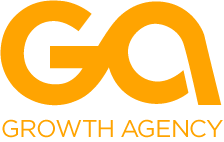At the end of May, over 2,000 pages of Google’s Content API Warehouse
documentation was leaked into the public domain, claiming to hold the secrets
of Google’s ranking algorithms. It’s by no means certain that the documentation
tells us what Google factors in search rankings today – and there’s no way of
knowing how much weight each of the metrics are given.
However, some of
the search marketing industry’s heaviest hitters have pored over the content
and pulled out some useful takeaways that could form the basis of some
interesting experiments and tests going forward. Here, we’ve rounded up some of
the key points:
Link relevance matters
This shouldn’t come as too big of a surprise, but the
experts agree that link relevance is an important factor. Some interpretations
of the data suggest that Google may even ignore links that it doesn’t consider
to be relevant.
Focusing on building relevant links is good practise
regardless. Yes, those are harder to come by and they will take longer to
acquire than links from irrelevant, low quality sources, but the effort put
into that link doesn’t just add weight to your SEO efforts. It could also help
to direct more of the right kind of traffic to your site, simply by placing
your name and URL in front of more people who are interested in your product,
service or industry niche.
Links from news outlets are valuable
Achieving press coverage isn’t easy, but digital PR could be
a game changer for your search positions as well as your overall business
visibility. The leaked documents suggest that links from trustworthy and authoritative
news sources are high value. Examples of those kinds of sources include the
BBC, Sky News, Daily Mail and similar. You should also target reputable news
outlets within your industry.
Consistency is important
One section of the leaked documents appears to suggest that
new links could be given equal billing with high-quality links. This means that
regularly adding links to your backlinks profile could play an important role
in boosting your search rankings. For new links to be added regularly, you’ll
need a consistent schedule of activity.
Anchor text and context matters
Contextual detail around a URL provides insight as to what
the linked page relates to. Analysis of the leaked docs suggests that it’s not
just the anchor text that’s used to gain an understanding of the link, but the
content on the page around the link, too. When link building, you’ll need to
keep this in mind and be careful where and how you place links. You’ll also
need to ensure that your links are very tightly related to the text itself.
If you’d like additional support taking your SEO results to
new heights, we’re here to help. Contact
us to find out more about working with our data-driven, results-oriented
team.


